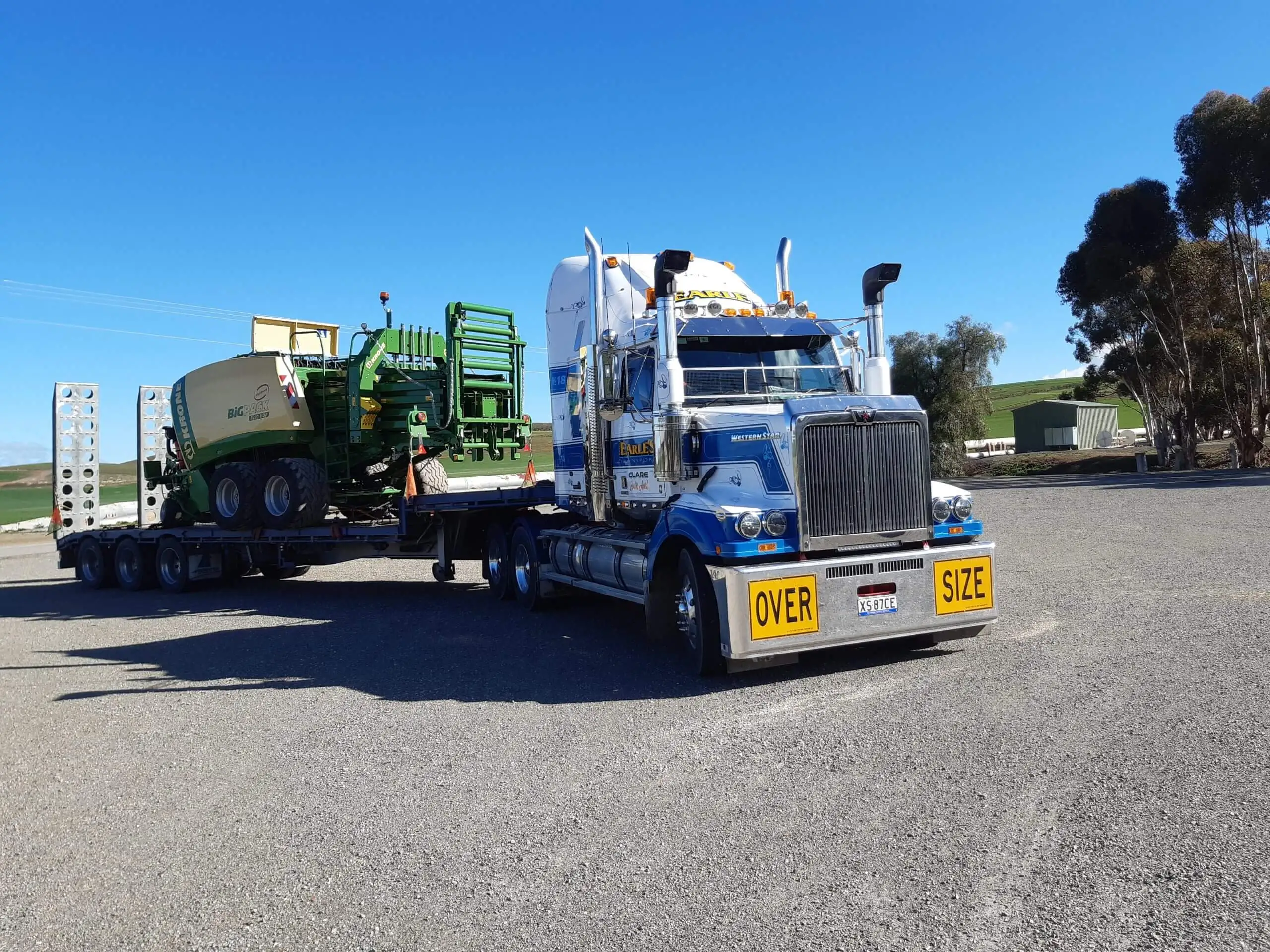Avoid These Common Mistakes in Heavy Machinery Transport
Transporting heavy machinery is no simple task. Whether you're relocating an excavator, a bulldozer, or a crane, even the smallest mistake can lead to costly delays, equipment damage, or serious safety risks.
Without proper planning, this smooth process can quickly turn into a logistical nightmare. However, with the right strategies and precautions, you can avoid common pitfalls and ensure hassle-free transport. Here's how to do it right.

Ignoring Weight and Size Regulations
One of the biggest mistakes people make while heavy machinery transport is failing to check weight and size regulations before transport. It's easy to assume that a truck can handle your load, but different states and regions have strict rules about oversized hauls.
If your machinery exceeds certain weight or size limits, you'll likely need permits. And getting caught without them can lead to fines, delays, or even your load being forced off the road.
To avoid this, always check local transport laws before moving your equipment. Moreover, permits can take time to process, so don't leave them for the last minute. If you're unsure, working with an experienced transport company can save you a lot of headaches since they deal with these regulations regularly.
Poor Route Planning
You can't just type an address into Google Maps and expect a hassle-free trip—especially when moving heavy machinery. Not every road, bridge, or tunnel is built to handle oversized loads, and the last thing you need is to get stuck under a low bridge or on a restricted road.
That’s why planning your route in advance is so important. Before you hit the road, check for any restrictions, ongoing construction, or tricky turns that could cause trouble. Additionally, using a GPS designed for oversized loads can make the journey smoother, helping you avoid unexpected detours. A little extra preparation now can save you time, money, and a whole lot of stress later.
Inadequate Load Securing
Failing to secure your machinery properly can have disastrous consequences. If equipment shifts during transit, it can damage the truck and other vehicles or even cause serious accidents. Loose straps or weak tie-downs are especially risky over long distances.
So, it becomes really important to secure your machinery with heavy-duty chains and straps during heavy equipment hauling. Always lock moving parts, such as booms or buckets, to prevent unexpected shifting.
Furthermore, you can also consider a telehandler for hire for safer loading and unloading. A telehandler can provide better handling and stability, reducing the risk of damage before transport even begins.
Forgetting About Weather Conditions
Weather conditions can significantly impact heavy equipment transport. Rain, snow, and strong winds create hazards like slippery roads, reduced visibility, and unstable loads that increase the risk of accidents.
That's why it is good to check the weather forecast before your trip. If severe conditions are expected, postponing the move might be the safest option.
However, if rescheduling isn't possible, taking the proper precautions can make all the difference. Secure tarps to protect equipment from rain, reinforce tie-downs against strong winds and ensure the truck is equipped for winter conditions when travelling through cold regions. Being proactive helps prevent costly delays and safety risks.
Underestimating Insurance Needs
Many businesses assume their regular insurance covers transport-related risks, but that's not always the case. If damage occurs during loading, road accident or a theft, the last thing you want is to discover too late that your coverage falls short.
To avoid costly surprises, review your insurance policy before transport to ensure it covers potential damages and delays. If you're using a transport company, verify that they have sufficient liability coverage. For high-value machinery, consider additional insurance for extra protection and peace of mind.
Choosing the Wrong Transport Company
Not all trucking companies can handle heavy machinery. Just because they move freight doesn't mean they're equipped for oversized loads. Choosing the wrong one can lead to delays, damage, or even legal trouble.
To avoid these risks, take the time to research before hiring. Check reviews, ask about their experience with your machinery, and confirm they have the right permits and equipment. A trustworthy company won't hesitate to provide proof—they know expertise matters.
In Conclusion
Success in heavy machinery transport comes down to planning and expertise. Secure your load, double-check the details, and avoid costly mistakes.
Ready to move your equipment safely? Let Earles Transport handle the heavy lifting for a secure and hassle-free move!
